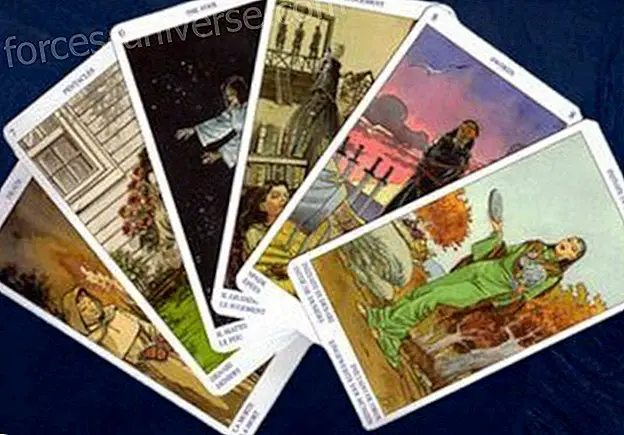
Tibetan teacher Nyoshul Khen Rinpoche once said how to practice Zen :
I would like to give everyone a little advice. Relax Just relax. Be good to each other. In your life, just be kind to others. Try to help them instead of hurting them. Try to accompany them instead of abandoning them. I leave you with this and with my best wishes.
Sounds easy, right? As we were taught in the kindergarten, how to be kind, and when it is time for rest, relax for a while on our rugs with our pillows. So why is it so hard to do now? We treat each other with impatience, aggression, irritation and contempt. When it is time to meditate, a lot of distractions arise, all so important that they cannot wait even a few minutes until we finish the meditation. If you practice to achieve something, peace and joy and good health for example, it is very difficult to keep up the practice. On the other hand, if you can sit just by sitting, not to achieve anything, it is simply what you have to do at this moment, then the mind can relax and we begin to remember who we really are, the essence without beginning, without end, which is always present in everything, but without depending on anything. In fact, when we look at nothing, asking ourselves “What is nothing?”, The small, agitated and frustrated mind can take a nap, knowing that “it does not know”, relieving itself of the responsibility of controlling everything, solving everything, and Prepare for everything. There is something else holding us, but it is nothing, it is nothing. Already, just relaxing for a moment, opening to nothingness, is itself your own gift. And from there, we feel one with ourselves again, one with the world, and we can go out into the world and open ourselves to prefection in every person and everywhere.
To practice the zazén, full attention is needed, which is our ability to be present in the experience arising in this body and this mind at this precise moment. It is the intention of opening up to the world as it is, just like that, without criticizing it or clinging to anything, attending to what is presented, following the advice of our heart, our true self, the essence, in the kindest way possible, or let it be, with compassion, which is the most natural response to the suffering that surrounds us. However, there are two forms of compassion: small compassion and great compassion. The two are different from empathy, the one felt by someone in relation to oneself. For example, if you feel sorry for someone, it is usually because the other person is in a worse situation than you. You are perhaps motivated to help such a person, hoping that if one day you need help, someone will help you too. This form of empathy in reference to oneself is not Buddhist compassion.
Buddhist compassion is felt from the perspective of the Dharma, seeing sentient beings deserving pity not because they are subtitles, but because they are suffering of their own will, and do not even realize it. This form of compassion can only be generated by understanding the Dharma, giving rise to a true sense of pity. It is understood that people harm themselves by ignorance, directly or indirectly. A bodhisattva can see this and feel sorry for them, knowing that these beings are not aware of the causes of their own problems, and therefore, do not see the need to get the wisdom to solve them. A bodhisattva is unconditionally dedicated to the relief of the causes of pain and suffering in all. Even bodhisattva should practice introspection to see their own ignorance within themselves, the causes and conditions, reducing their own suffering to the least possible. Seeing suffering in others, a bodhisattva can reflect and see the causes of suffering in itself.
This happened to me a couple of days ago. Karma, the causes and conditions, can arise at any time in exactly the form that can reveal to us where we are still vulnerable to the kleshas of desire, aversion, and ignorance. I had this telling moment then when entering a bank to make a quick transaction. I put myself in the correct short row, according to me, indicated by my “ premier ” card, which gave me the privilege of jumping to the entire long line waiting for his turn, because “ I ” had a special card, that is, privileged. By chance, the cashier at the window looked at me, pointing at his partner something about me. He indicated that he could not attend me because his window was closed. I showed him my privileged card and the sign in front of the line asking, "Is there no premier service?" He said no. So I got in the other long row, a little annoying, but trying not to show my impatience. Of course, the long line took forever to move forward. After about 15 minutes, another man entered the premier short line, and the first cashier attended him immediately at his window. Already, I was furious. “How can it be, ” I thought, “that they didn't attend me in the privileged line, and they quickly attended to this other man? What do they have against me? ”For the rest of my wait in the long line, my thoughts flew with all the injustice and prejudice they were inflicting on me. I tried to practice with vigilant attention, leaving the ideas of injustice aside while experiencing the pure sensation of anger and anger in my gut. In fact, it worked to some extent. The intensity of my agitation was greatly diminished. But coming to the window of the long line, I was still attached to a sense of aversion and injustice. At the end of my transaction, I could not resist the question aloud to the cashier attending to me, “If there is a line with a sign saying“ premier ”there, and the window with a sign saying“ premier ”above gives the window of this cashier to his side, why didn't they attend to me? ”The man looking at me in a confused way asked me, “ Do you have it. a premier card? ”“ Of course, ”I said proudly, pointing my privileged card to him and everyone in the long line behind me. It was like being in a big circus, and I was the big attraction. "Why did you take care of this man, and not me ?" I challenged him. Already the cashier was clearly scared by my attitude and tone of voice. I didn't know how to respond. Trying to soften the confrontation, he said that the cashiers thought I was in the wrong line of “express” transactions . Well, apparently this was another kind of privilege that “ I ” didn't belong to, and they didn't understand that “ I” had the privilege of " premier ". I was recommended by the cashier who shows me my premier card next time. Feeling already the absurdity of all this show conversation, I decided to escape as quickly as possible, although my wounded pride still had a final statement expressing: "I did it, " I said, "and I will do it again next time, but I will It seems a great disrespect. ”And with this, I turned and left the bank, everyone gaping at me as I left the place pretending to be a personal triumph. Even at this moment, I realized that I had just acted like a madman of auction, and I doubted if I could ever return to this bank branch in the future. Such is the small mind interpreting all the information passing through the senses, conditioned by the karma of the past, and manifesting itself again in the present. The difference is that this time, I saw everything happening in front of me as if in slow motion and I understood with full awareness how my misinterpretations, together with the wrong interpretations of the cashiers, resulted in misunderstandings, negative emotions, and suffering for me, the ATMs, and all the public witnesses in the bank. So I am with the kleshas of my own karma. I begin the practice of atonement and repentance, then resolving not to do the same in the future, contemplating the precepts 5, 6, 7, and 9, which have to do with not clouding the mind (with my anger); Do not talk about the mistakes or mistakes of others (the error of the cashiers); not puff up or despise others (my privileged premier card and the special treatment it deserved); and not to get angry (my anger towards the cashiers and imagined injustices). This introspection, seeing the causes of my own suffering, and how to free myself from them, is an aspect of small compassion.
In contrast, great compassion manifests itself at a very advanced spiritual level of a bodhisattva, when it is about to become a perfect Buddha. Only Buddhas and great bodhisattvas such as Avalokiteshvara, Samantabadra, Kshtigarbha, and Manjushri show this kind of great compassion. They have no idea of saving a sensitive being; in fact, there is no subject that saves anyone, nor anyone to save, nor are there sentient beings that exist to save. However, bodhisattva salvation arises spontaneously and naturally saving everyone. This is due to its absolute non-self state, without object or subject. Although we as ordinary practitioners still cannot practice like this, we must cultivate the intention of practicing with great compassion like Buddhas.
Another requirement for the practice of Zen is the cultivation of renunciation. It is not that we had to leave our homes to live in a cave. Renunciation means letting go of attachments so that we are free and happy. We learn to let go of acquisition, greed, hatred, greed, and aversion. We free ourselves from attachment through renunciation, training on how to release them. By giving up attachments, we release them completely. The attitude of non-attachment in your practice will give you freedom and tranquility. That includes the experience of good things. It must be said that they are impermanent and no reason to feel pride. If deviant thoughts arise causing you obstacles and discontent, they are also impermanent and nothing to worry about. By understanding impermanence while practicing non-attachment, it is possible to free yourself completely. It is not just something intellectual. We must practice these attitudes in action in the everyday world, knowing that everything is transitory and releasing the attachments and the concept of the independent self. Thus, compassion arises naturally, and we are attentive and aware of how to perform our Buddhahood in every moment of life.
Bibliography
Goldstein, Joseph. (2005). A unique Dharma. The March Hare: Barcelona, Spain.
Yen, Sheng. (2009). Shattering the Great Doubt . Shambhala: Boston and London.
Attitudes for Zen practice






